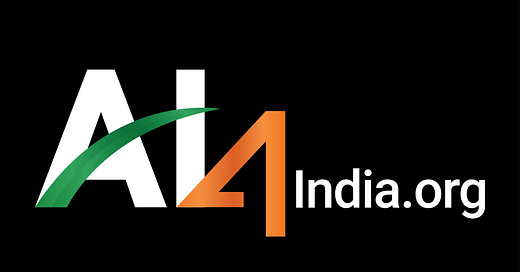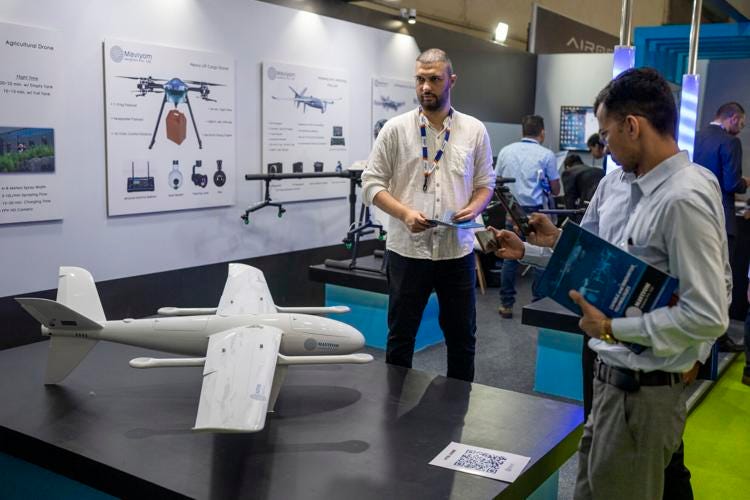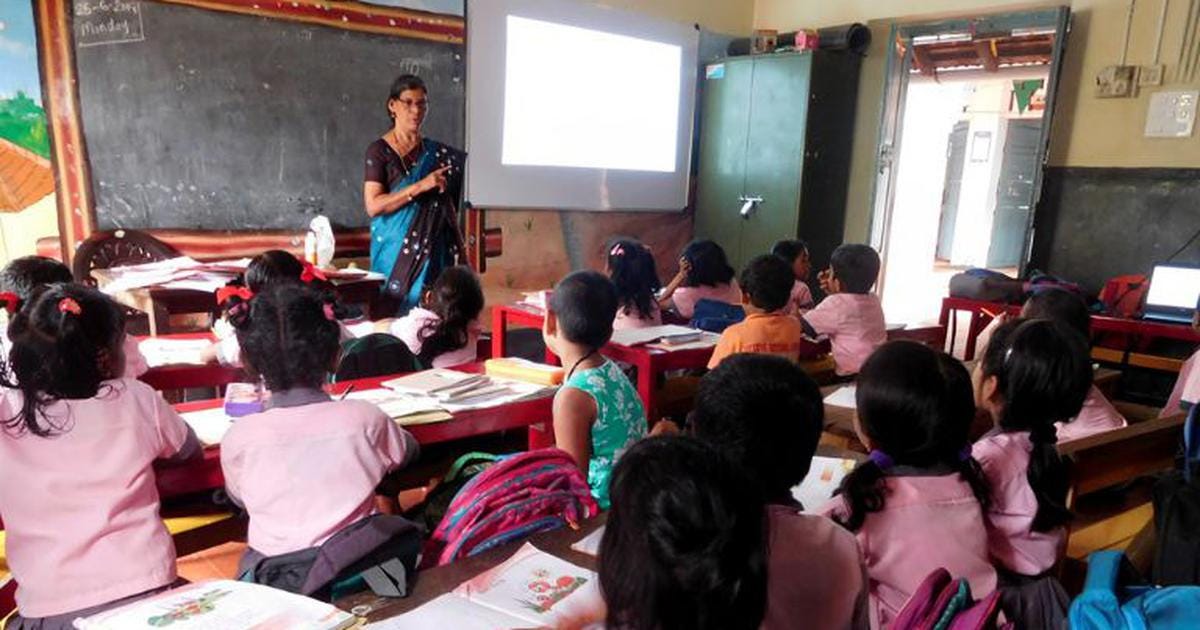Introducing the third edition of the AI4India Weekly newsletter, your top destination for staying updated on the latest advancements and insightful perspectives in the ever-evolving realm of artificial intelligence. For this week’s edition, we will be covering diverse AI developments in India from interesting insights on self-driving cars to AI ethics, healthcare innovation, and more.
Navigating India's Roads: Self-Driving Cars Revolutionise Urban Travel
Several startups in India are challenging the notion that the country's chaotic roads make it unsuitable for self-driving cars. One such startup, Swaayatt Robots, based in Bhopal, recently showcased a video demonstrating progress in developing autonomous vehicles. The video features an SUV navigating through narrow, crowded streets, avoiding pedestrians, animals, and other obstacles typical of Indian road conditions. Swaayatt CEO Sanjeev Sharma highlights the unpredictability and adversarial nature of Indian traffic, making it a challenging environment for self-driving technology. Unlike Western approaches relying on detailed mapping and deterministic models, Swaayatt adopts probabilistic algorithms to navigate India's unruly streets in real-time. Another startup, Minus Zero, based in Bengaluru, is developing a holistic system for self-driving cars, focusing on understanding physics and road-user behavior rather than relying on modular approaches. Additionally, RoshAi, founded by Roshy John, is leveraging Indian driving data to create customizable self-driving solutions for automotive companies. While self-driving technology in India is still in its testing phase, simpler driver-assistance systems are already being integrated into high-end Indian-made cars. However, challenges such as the lack of standardized road infrastructure and the availability of affordable alternatives like hiring drivers may impede the widespread adoption of self-driving technology in the near term. Nonetheless, with India's talent pool and growing government support for technology startups, the country has the potential to become a leader in self-driving technology development, even if its immediate market impact remains uncertain. Read More
A self-driving car from the startup Minus Zero relies on an end-to-end model of autonomous driving
BharatCompute: Paving the Path for AI Dominance
The BharatCompute initiative, recently unveiled by the government, marks a significant stride in India's AI capabilities, particularly in AI compute infrastructure. With a focus on leveraging public-private partnerships (PPPs), this initiative aims to bridge the gap between India and global leaders in AI compute, such as the US and China. By deploying over 10,000 GPUs, BharatCompute seeks to foster a competitive ecosystem while prioritizing accessibility and affordability. Emphasizing the importance of CPU-based compute capacities and sovereign AI needs, the initiative advocates for secure, India-based infrastructure and encourages the development of foundational models tailored to Indian requirements. Through strategic tax breaks and support for custom AI chip development, BharatCompute aims to propel India towards AI ascendancy, leveraging its abundant talent pool and data resources. Read more
India's AI Odyssey: Generative Tech Ignites Economic Potential
As India charts its course towards achieving ‘Viksit’ status by 2047, the nation’s economy is poised for a significant transformation. However, amidst this journey, various global developments are set to reshape the economic landscape, offering both challenges and opportunities. According to the latest EY Economy Watch report, emerging technologies, climate challenges, de-globalisation, and de-dollarisation are key trends that India must address in its pursuit of becoming a developed nation. The rise of generative AI (GenAI) holds immense potential to bolster productivity and output, with estimates suggesting a substantial boost to India’s GDP by FY30. Yet, navigating technological shifts requires strategic policy interventions to ensure a net positive impact on employment and overall GDP growth. Climate change presents another formidable challenge, with natural disasters posing significant economic risks. To mitigate losses, India must prioritize investments in climate-resilient technology and innovation. Additionally, geopolitical tensions have fueled de-globalisation, prompting trade disruptions and fragmentation. However, India’s strategic positioning as a trade connector offers opportunities to strengthen its trade ties. Moreover, India’s lower government indebtedness provides fiscal flexibility, positioning the nation favourably compared to its global peers. Yet, achieving sustainable growth demands careful policymaking and a commitment to responsible fiscal behavior to avoid potential pitfalls. Read more
Jivi: Leading the Healthcare AI Revolution Globally
Jivi, an Indian healthcare AI startup co-founded by Ankur Jain, former Chief Product Officer at BharatPe, and GV Sanjay Reddy, Chairman of Reddy Ventures, has achieved the remarkable feat of ranking number one on the Open Medical LLM (Large Language Model) Leaderboard. Surpassing established LLMs like OpenAI’s GPT-4 and Google’s Med-PaLM 2, Jivi MedX attained an average score of 91.65 across nine benchmark categories. Hosted by leading AI platform Hugging Face, the University of Edinburgh, and Open Life Science AI, the leaderboard evaluates medical-specific LLMs based on their ability to answer medical questions from exams and research. Anchored by a lean team of physicians, surgeons, AI engineers, and data scientists, Jivi is revolutionizing primary healthcare through generative AI, aiming to make top-quality care accessible globally. With a vast proprietary medical dataset and innovative training algorithms, Jivi MedX is poised to enhance patient care by accelerating diagnostics and ensuring timely and precise treatment. Read more
Empowering India: UNESCO and MEITY Join Forces for Nationwide AI Ethics Workshop
Government representatives convened for the “National Stakeholder Workshop on Ethics of AI” to discuss the integration of moral considerations into AI strategies, aligning them with global norms and the public good. This initiative aims to foster equitable and sustainable AI adoption across India by establishing robust frameworks for ethical AI development and application in key sectors. UNESCO is collaborating with the Indian government to assess and enhance existing institutions, laws, and policies related to AI, guided by the UNESCO Recommendation on the Ethics of Artificial Intelligence. Utilizing the AI readiness assessment methodology (RAM), this partnership will conduct a comprehensive needs assessment to inform the co-design of strategic AI frameworks. The workshop serves as a pivotal platform for state and federal government representatives to engage in dialogue about the ethical and societal implications of AI technologies. By facilitating critical discourse and integrating ethical considerations into AI policies, the workshop aims to ensure that AI applications align with global standards and benefit society at large. Its overarching goal is to equip participants with the knowledge and tools necessary to navigate the opportunities and challenges of AI, promoting its fair and sustainable adoption across India. Read more
Flying High: India's Drone Sector Soars with AI Mission and
Government Support
A recent survey conducted by Nexgen Exhibitions, organizers of the Drone International Expo, reveals the profound impact of India's AI mission on the growth of the Indian drone sector. Engaging over 150 drone manufacturing and service-providing companies across 11 cities, the survey highlights India's potential to lead global drone technology and innovation. With the integration of AI into drone technology, capabilities such as autonomous navigation and real-time data processing are expected to enhance efficiency and operational intelligence significantly. Projections from Statista indicate a lucrative market, with Indian drone revenue expected to reach US$27 million by 2024, fueled by a robust domestic manufacturing ecosystem. Recognizing the need for technological advancements, companies aim to leverage AI, high-precision sensors, battery innovation, 5G networks, and cybersecurity measures to compete globally. Scheduled for July 4-5, 2024, in New Delhi, the Drone International Expo provides a premier platform for industry collaboration and showcases cutting-edge products and technologies. Aadhar Bansal, Director of Nexgen Exhibitions, emphasizes that India's AI mission and favorable government policies are instrumental in driving innovation, enhancing domestic capabilities, and positioning India as a global leader in drone technology. Collaboration between government, industry stakeholders, and technology innovators will be key to realizing India's vision of becoming a global drone hub. Read more
Flight to Efficiency: AI Revolutionises Indian Airlines' Customer Service
Indian airlines are harnessing the power of artificial intelligence (AI) to enhance customer service and operational efficiency amidst a backdrop of rising air traffic. Air India and IndiGo lead the charge with their AI-powered virtual agents, AI.g and 6Eskai, respectively, which handle a wide range of topics and reduce the workload for customer service agents. Akasa Air, a newer entrant in the market, is investing in cutting-edge technologies such as optimization and AI to gain insights into customer behavior and operational parameters. These advancements underscore the growing role of AI in streamlining airline operations and improving passenger experience. With initiatives such as the integration of Google's Gemini and advancements in AI chatbot capabilities, Indian airlines are poised to further elevate their AI-driven services, offering passengers seamless booking experiences and efficient query resolution. Looking ahead, the aviation sector sees immense potential for AI applications, from ticket rescheduling to cybersecurity, signaling a transformative era driven by technological innovation. Read more
Gatewai Unveils AI-Powered Solutions for India's GCC Market
GatewAI has introduced AI-Powered Solutions designed to establish Talent, Technology & Innovation hubs in India, aiming to accelerate innovation by creating collaborative ecosystems for multinational corporations (MNCs) to thrive in the country's dynamic market. Anchored by industry veterans Ankur Goel (Founder & CEO) and Suchita Vishnoi (Co-founder & CMO), alongside Varun Mahajan as the CDO, GatewAI positions itself as a dynamic, reliable, and cost-efficient partner for global MNCs. Their services span four categories: wAI to Market (market advisory and regulatory guidance), wAI to Talent (AI-powered talent solutions), wAI to Infra (real estate and infrastructure provisioning), and wAI to B-O-T (Build-Operate-Transfer framework). According to Ankur Goel, GatewAI's AI-first approach enables the swift establishment of capability centers for clients, minimizing time to market and optimizing operational costs. Suchita Vishnoi emphasized their focus on harnessing cutting-edge technology and localized expertise to help global enterprises navigate India's market complexities effectively. As India emerges as a global hub for talent and innovation, GatewAI positions itself as a trusted partner ready to facilitate sustainable growth for MNCs leveraging India's vibrant ecosystem and business-friendly policies. Read more
Envisioning Responsible AI for India's Future
Governments worldwide are recognising the urgency of regulating AI development, with recent initiatives from the USA and the European Union highlighting this trend. While the US has issued an executive order emphasizing safe AI practices, the EU is set to enforce stricter regulations with hefty fines for non-compliance. However, India's policy-making landscape appears to be lagging, with recent advisories lacking clarity and a draft AI policy expected in July. Moving forward, it's essential for AI policies to prioritize accountability, bias mitigation, and collaboration across various stakeholders. This involves defining and categorizing biases, implementing enforceable bias mitigation policies, and establishing a collaborative framework for policy development. Furthermore, fine-tuning AI models through human testing, preserving Indian user data integrity, embracing cultural diversity, and enforcing punishments for non-compliance are critical aspects to consider. While some advocate for creating "Indic" foundational models, robust regulations are indispensable, akin to safety regulations for vehicles. Leveraging global precedents like the EU's GDPR and India's commitment to digital sovereignty can guide the formulation of a comprehensive AI policy, fostering innovation while safeguarding societal and national interests. Read more
TCS Harnesses AI for Unprecedented Growth
Amidst the evolving global landscape marked by economic fluctuations and geopolitical tensions post-pandemic, Tata Consultancy Services (TCS) has demonstrated resilience and adaptability. Recognizing Artificial Intelligence (AI) as a major mega-trend shaping business priorities, TCS Chairman N Chandrasekaran highlighted the transformative impact of GenAI across industries. GenAI is poised to enhance productivity and drive unprecedented business impact, leveraging investments in cloud infrastructure and data processing power. TCS is spearheading over 100 GenAI projects within the Tata Group, showcasing tangible benefits in customer experience, productivity, and efficiency. In sectors like e-commerce and manufacturing, GenAI is revolutionizing processes, enabling personalized shopping experiences and enhancing shopfloor productivity. TCS has prioritized partnerships in AI, cloud, quantum computing, and cybersecurity, positioning itself as a trusted technology partner for its clients. By integrating GenAI capabilities into its product suite and developing innovative platforms for business applications, TCS is at the forefront of driving AI-led transformation across industries, empowering enterprises to thrive in the digital era. Read more
Decoding the EU AI Act: Lessons for India
The European Parliament's approval of the EU AI Act in March 2024 marks a watershed moment in global AI regulation. The Act, passed with an overwhelming majority, introduces a risk-based approach to AI governance, categorising AI applications by risk level and imposing corresponding regulatory requirements. Key features include stringent standards for high-risk AI systems, transparency mandates, and the establishment of regulatory bodies for oversight and enforcement. The Act's impact is expected to extend globally, influencing AI regulations worldwide and necessitating compliance from international companies operating within the EU. While the Act presents challenges for businesses, including increased compliance costs and operational changes, it also offers opportunities for ethical innovation and competitive advantage. India, with its burgeoning tech industry, can learn valuable lessons from the EU AI Act, including adopting a risk-based regulatory approach, prioritising transparency and accountability, and aligning with global standards to remain competitive in the international AI landscape. By leveraging these insights, India can foster a safe, ethical, and accountable AI ecosystem that promotes innovation while safeguarding fundamental rights and public trust. Read more
AI Guardian: Maharashtra's Pench Tiger Reserve Leads with India's First AI Forest Fire Detection Syste
The Pench Tiger Reserve in Maharashtra has introduced an innovative AI-based forest fire detection system, a first-of-its-kind initiative in India's conservation efforts. Covering an expansive area of 350 square kilometres, this cutting-edge technology utilizes a platform named Pantera, integrating camera feeds and satellite data to deliver real-time alerts within minutes of detecting forest fires. Spearheaded by Prabhu Nath Shukla, the deputy director of Pench, this initiative marks a significant advancement in forest management and wildlife protection. The system's high-resolution camera, coupled with satellite services, ensures comprehensive coverage and timely intervention, underscoring its potential to revolutionize forest fire detection and response efforts in the reserve. Read more
Kerala Embraces the Future: AI Learning Integrated into School Texts
In a pioneering move, over 4 lakh students in Kerala are set to delve into Artificial Intelligence (AI) learning, thanks to its inclusion in the Information & Communication Technology (ICT) textbook for Class VII. Spearheaded by K Anvar Sadath, Chairman of the ICT Textbook Committee and CEO of KITE, students will engage in creating their own AI programs capable of recognizing human facial expressions, a first-of-its-kind initiative in India. The textbooks also introduce FOSS-based educational applications, language labs, and practical ICT activities aimed at nurturing life skills and promoting cybersafety. KITE has commenced AI training for 80,000 secondary school teachers, further bolstering the state's commitment to integrating cutting-edge technology into its educational curriculum. Read more
NOTE : The views expressed by the authors are their own. AI4India as a forum does not endorse any comments on specific brands, products, platforms or companies
Join our AI4India.org forum to be a part of the AI revolution in India by visiting our site now.
Follow us on our X and LinkedIn to receive interesting updates and analysis of AI-related news













